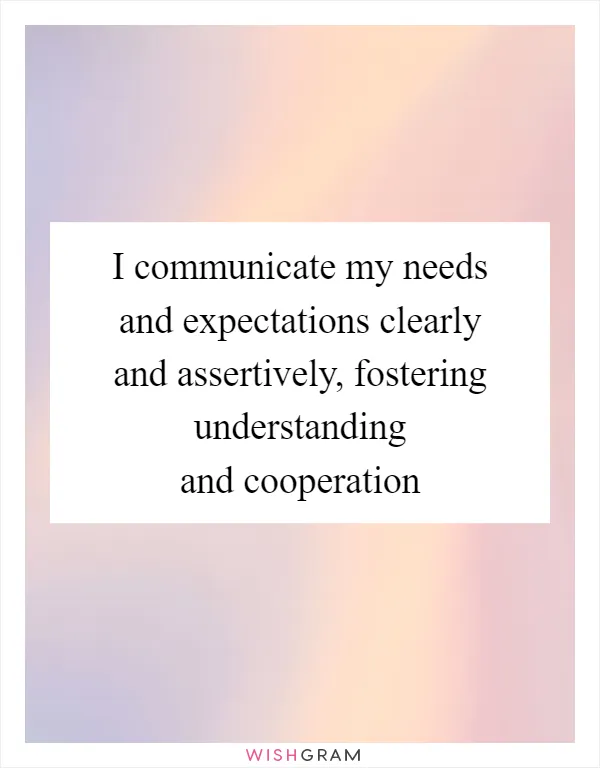I communicate my needs and expectations clearly and assertively, fostering understanding and cooperation
The affirmation "I communicate my needs and expectations clearly and assertively, fostering understanding and cooperation" can help you improve your communication skills. When you communicate your needs and expectations clearly, you are more likely to get what you want and need from others. Assertiveness is an important part of effective communication because it helps you express yourself in a way that is confident and respectful.
When you communicate your needs and expectations clearly, you are fostering understanding and cooperation. This means that you are creating an environment where others can understand what you need and want, and are more likely to work with you to achieve your goals. When you communicate assertively, you are expressing yourself in a way that is clear and direct, without being aggressive or passive.
Assertive communication is important because it helps you express yourself in a way that is respectful and effective. When you communicate assertively, you are expressing your needs and expectations in a way that is clear and direct, without being aggressive or passive. This means that you are more likely to get what you want and need from others, while also maintaining positive relationships.
To communicate your needs and expectations clearly and assertively, it is important to use "I" statements. This means that you are expressing your own thoughts and feelings, rather than blaming or criticizing others. For example, instead of saying "You never listen to me" you could say "I feel frustrated when I don't feel heard".
It is also important to be specific when communicating your needs and expectations. This means that you are expressing exactly what you need or want, rather than being vague or general. For example, instead of saying "I need more help around the house" you could say "I need you to do the dishes every night after dinner".
When communicating your needs and expectations, it is important to listen to the other person's perspective as well. This means that you are open to hearing their thoughts and feelings, and are willing to work together to find a solution that works for both of you.
